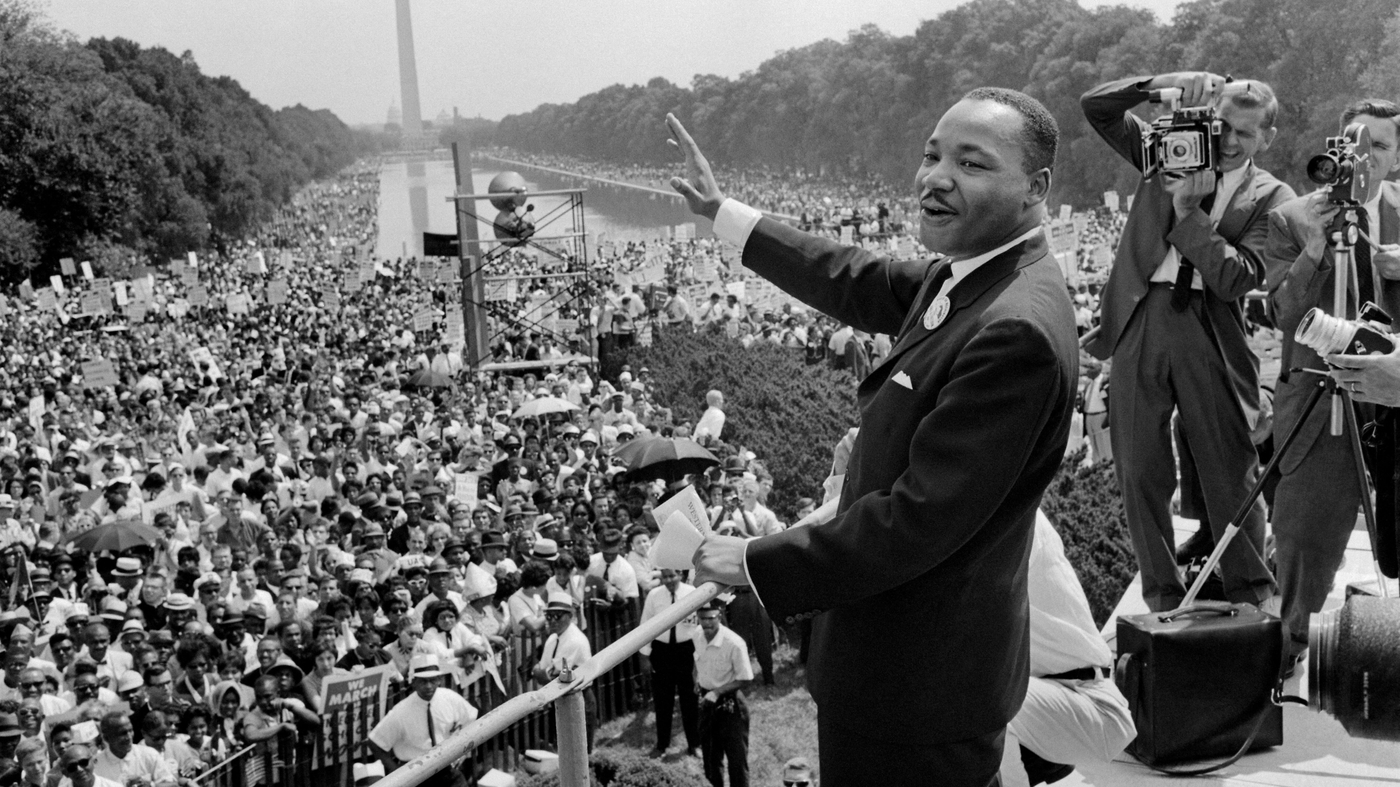Martin Luther King Jr. waves to supporters on August 28, 1963, during the March on Washington for Jobs and Freedom on the Mall in Washington, D.C. Activists marked 60 years since the march in 2023. A lot of big news happened in 2023, but it was also a year to remember things that happened in other years. That’s right — we’re diving into history with a year-end roundup of anniversaries. Here’s a list of articles from 2023 about notable historical happenings, organized by what month they originally occurred.
“`
Anniversaries From 2023
January
2013: In 2023, it feels like the world is on fire. But it’ll be OK if you just tell yourself, “this is fine” … right? In 2013, Question Hound’s most famous comic strip debuted, which over the years spawned a mass of internet memes.
1943: Casablanca opened nationwide in the U.S. The movie about refugees fleeing Nazi-occupied Europe included actors who were refugees themselves.
1923: Sam Phillips was born. The record producer brought the world Elvis Presley, Johnny Cash, Roy Orbison and B.B. King. He founded the legendary Memphis label Sun Records and was a key architect of rock ‘n’ roll.
Also in 1923: Prognosticators prognosticated a whole slew of ideas for a century in the future: “No More Hard Work By 2023!”
February
2003: The space shuttle Columbia disintegrated over Texas as it returned to Earth. Seven astronauts were killed. NASA’s deputy administrator talked with NPR about what she remembered from that day and how the disaster affected future missions.
Also in 2003: Secretary of State Colin Powell delivered a speech to the United Nations Security Council saying Iraqi leader Saddam Hussein had “weapons of mass destruction.” His claims turned out to be based on faulty information.
1993: Federal agents arrived at the compound of the Branch Davidian Christian sect near Waco, Texas. A gunfight ensued, during which five Branch Davidians and four federal agents were killed.
1973: About 200 Native American activists seized the South Dakota town of Wounded Knee, kicking off a monthslong occupation that helped galvanize the movement for Indigenous rights across the U.S. They aimed to protest corruption in tribal leadership and highlight the U.S. government’s failure to honor Native treaties.
March
2003: President George W. Bush sent U.S. troops to invade Iraq, launching a war with profound effects for the U.S. and the Middle East.
1973: Pink Floyd released the classic album Dark Side of the Moon. NPR answered the burning question: What does a psychologist think of the lyrics?
April
2003: The English translation of the classic memoir Persepolis by Marjane Satrapi was published.
1993: The World Wide Web launched into the public domain, making it simple for anyone to navigate the internet.
1973: Anyone looking for authentic Indian recipes has likely come across Madhur Jaffrey’s books. Her first cookbook, An Invitation to Indian Cooking, was published in 1973.
1948: The World Health Organization was founded “to promote and protect the health of all peoples.” As the United Nations agency turned 75, eight global health specialists offered bold new agenda items to add to its docket. Among them: thinking more about adolescent health and the ethics of new technology.
May
1963: Young students in Birmingham, Ala., peacefully marched to demand an end to segregation. It became known as “The Children’s Crusade.”
1948: Israel was established as a homeland for Jews, while the majority of Palestinians were displaced.
1873: Blue jeans were patented by Jacob Davis and Levi Strauss. Davis had the idea to add metal rivets at the stress points of denim work pants, making them stronger.
June
2013: The Guardian and The Washington Post published articles about the National Security Agency’s mass collection of data on American citizens, based on information provided by Edward Snowden.
1983: NASA mission specialist Sally Ride became the first American woman to fly in space.
“`

